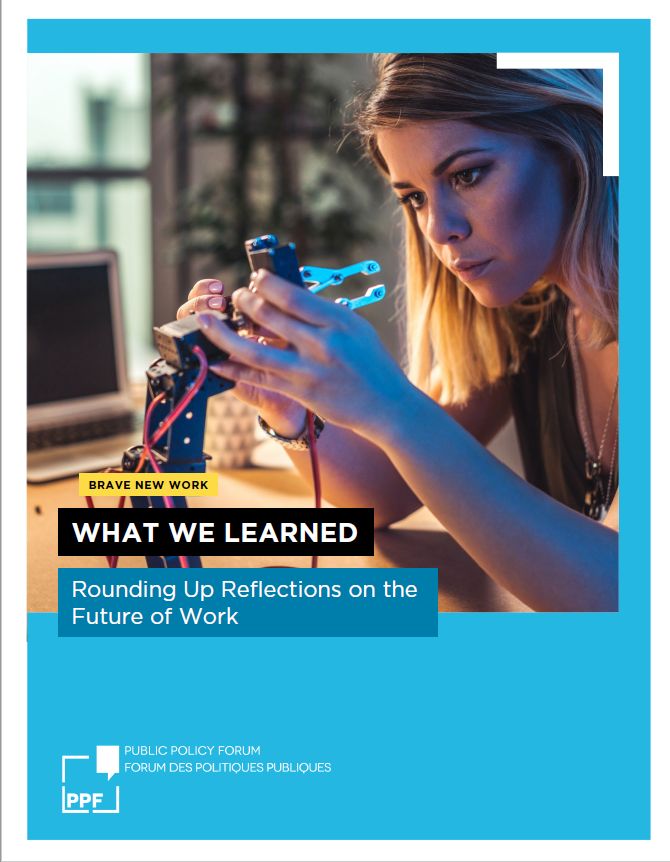
What We Learned: Brave New Work Round Up
Introduction from the President

When the Public Policy Forum launched our Brave New Work research initiative in June, 2018, several things quickly became apparent:
Labour policy had been designed for a binary world in which people were either in work or out or work, in school or out of school, in retirement or not retired. But the boundaries had blurred and policy needed to catch up.
People were feeling anxious about gig work, but the phenomenon was really just one more form of frayed attachment between employers and employees. Still, precarity demanded attention.
The narrative about technology putting jobs – or at least tasks within jobs – at risk was true, but so was the lesser emphasized narrative about the rise of whole new categories of work. The trick was to ensure Canada gets its share of these technology-driven opportunities and that they are inclusive.
Finally, our Brave New Work advisory group felt the most urgent area for attention was what we called The Messy Middle. Unlike the linear education system or the retirement system for exiting workers, the middle grounds where people get “disrupted” out of their jobs and need support while they reskill and upskill lacked coherence. It wasn’t a system at all but a messy hodge-podge of programs and policies, many of them peripheral to the main purpose of the institutions delivering them.
If this was not enough to chew on, the pandemic hit in the midst of this work. Many of the trends we felt demanded reform over the coming decade arrived prematurely.
With this recognition, PPF has gone back to the authors of our Brave New Work research and asked for their quick reflections on where we stand now and what needs to happen. This brings together one more time the diverse perspectives of thinkers and doers from academia, labour, industry, and policy – part of our commitments to provide space for candid conversations from diverse perspectives and to come to conclusions. We trust their insights will better inform deliberations in a policymaking area of critical importance for the prosperity, security, resilience and cohesion of Canadians.
Read contributions from key participants:

What they learned: The Mechanisms for Upskilling Canadian Talent are More Essential Than Ever
The shift from capital intensive to labour-intensive firms has resulted in increasingly shorter employment tenures. Companies are laser-focused on finding experienced talent, and workers with the right skills are in such high demand that companies are increasingly focused on luring talent away from their competitors. This may sound positive for workers, but the result is also massive groups of highly educated and yet underemployed Canadians who lack the skills employers demand.
In this environment, new mechanisms are needed to ensure that workers have the tools and support to gain in-demand skills. These challenges are top-of-mind for Palette Skills as we reimagine rapid upskilling programs that speak to needs in every region of the country. Our focus is three-fold:
1. Identify in-demand skills that companies struggle to fill
2. Build and scale upskilling programs that speak to these skills needs
3. Ensure workers gain the right mix of technical, business acumen skills and connections to secure employment with growth opportunities
We are at the front-end of understanding pathways and opportunities to support life-long learning and upskilling. As policymakers seek new tools to support the labour needs of high potential firms, we expect that policy debates on issues such as micro-credentialing, the role of post-secondary institutions, and the obligation of industry will intensify.
—
Bio
AJ is the Executive Director of Palette Inc. and a Fellow at the Brookfield Institute for Innovation + Entrepreneurship. Prior to launching Palette, she co-founded SoJo, a start-up social enterprise dedicated to working with educators and non-profits to provide curriculum and tools to train aspiring social entrepreneurs in the startup process. AJ started her career within the Ontario government serving as a Senior Policy Advisor in the Ministry of Training, Colleges and Universities, Ministry of Research and Innovation and the Ministry of Community and Social Services. AJ has a bachelor’s degree in political science from the University of British Columbia and a Master’s in Political Science from the University of Waterloo.
Arvind is the CEO of Palette Inc. and Professor of computer science at the University of Toronto. He has served as President and Vice-Chancellor of UBC, and was the Founder, CEO and Scientific Director of Mitacs Inc. Arvind was instrumental in creating the Pacific Institute for the Mathematical Sciences (PIMS) and the Banff International Research Station in Mathematical Innovation and Discovery (BIRS). He is a Senior Fellow of the Brookfield Institute for Innovation and Entrepreneurship and serves on the Boards of the IndiaCanada Research Centre of Excellence (IC-IMPACTS), BIRS, and SimTrec.
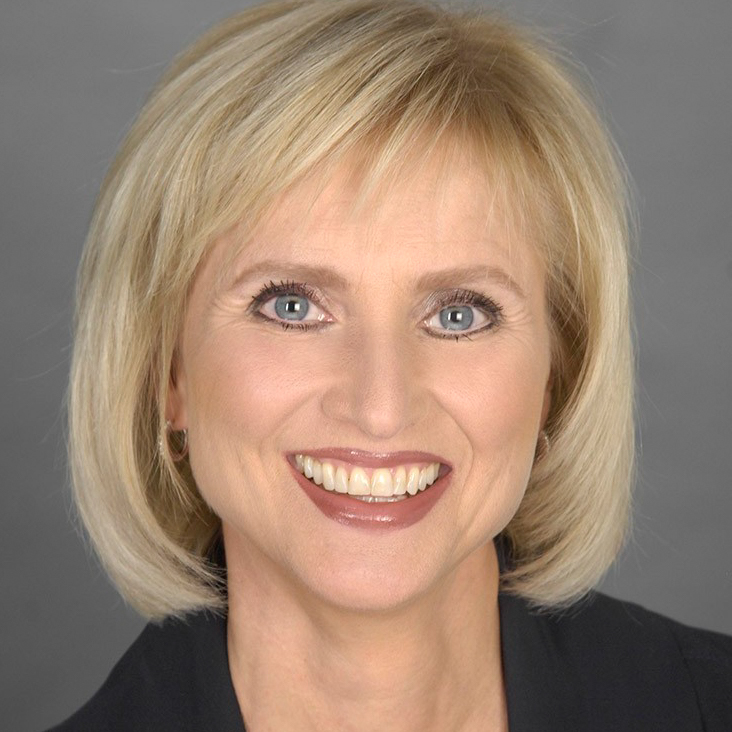
What she learned: Many employers were committed to health and safety, to diversity, equality and inclusion, to investments in upskilling initiatives, to decent working conditions for contractual workers or workers in in their supply chain before COVID. The sanitary crisis shed the light on remarkable business successes and pathetic failures in those areas.
Investors were leading the charge to drive change in financial markets to incent re-allocation of capital towards organisations that were driving value for investors by delivering valuable innovation and trust for clients, while driving value for employees and for society. Integrating environment, society and governance (ESG) in investment decisions is a mega trend led by global long-term investors and accelerated by regulators in many countries.
Global investors have cleared the path for smart regulation for sustainable finance for a green and just recovery. Absent a progressive regulatory framework, there will be money available to drive financial returns by doing the wrong thing for our planet and our people.
Policy makers have an unprecedented opportunity to simplify the patchwork of regulations by working with world leaders to adopt common disclosure frameworks and similar sustainable finance policies, and support Canadian businesses most impacted to regain or preserve access to global capital, clients and talent.
—
Bio
Québec Managing Partner for Ernst & Young Canada, Anne-Marie Hubert provides board members and senior management teams with strategic advice on governance, performance and risk management.
A member of the Ernst & Young Global Advisory Council from 2007 to 2009 and Ernst & Young Canada’s Executive Committee since 2009, Ms. Hubert has established a reputation for challenging the status quo to make it easier for all our people to offer quality service and positively impact our economy and our communities. She serves on the boards of the Fédération des chambres de commerce du Québec (FCCQ), the Public Affairs Committee of the Canadian Institute of Chartered Accountants and the Ordre des comptables agréés du Québec.
She was recognized in 2009 and 2010 as one of Canada’s 100 Top Most Powerful Women and was named as a Member of the Order of Canada in 2017.

What she learned: Talk about the future of work and most people head for Door #1: the impact of technology. That’s the wrong place to start.
The pandemic poured accelerant on the process of population aging. After decades of labour surpluses, expect 25-30 years of labour shortages, throughout the nations of the Global North. The historic solution to Canada’s skill shortages – immigrants – will be harder to come by as more nations compete for the same resource. We’ll have to become more of a people magnet.
This presents a remarkable opportunity: maximize the potential of Canadians who historically have had fewer opportunities to develop skills and get good jobs, so consequently have systemically experienced worse economic outcomes. This includes indigenous, immigrant, racialized, disabled, and young workers, and is relevant for the future of half the employed labour force, women.
As for technology: no, the robots won’t eat all of the jobs; but digital technologies like telepresence and platform economies mean higher-skilled and better-paid workers will for the first time be in competition with similarly skilled workers in lower-paid jurisdictions. (If you can work from home, you could work from anywhere. That works for some employers too.)
The future is ours to shape, but no question there will be challenges to come.
—
Bio
Armine Yalnizyan is the Atkinson Foundation’s Fellow on the Future of Workers. She served as Senior Economic Policy Advisor for the Deputy Minister at Employment and Social Development Canada from 2018 to 2019, and Ministers Freeland and Fortier’s Task Group on Women In The Economy in 2021. She helped lead the Canadian Centre for Policy Alternatives’ Inequality Project from 2008 to 2017, and provided weekly business commentaries on CBC radio and CBC TV from 2011 to 2018. She is past President of the Canadian Association for Business Economics.
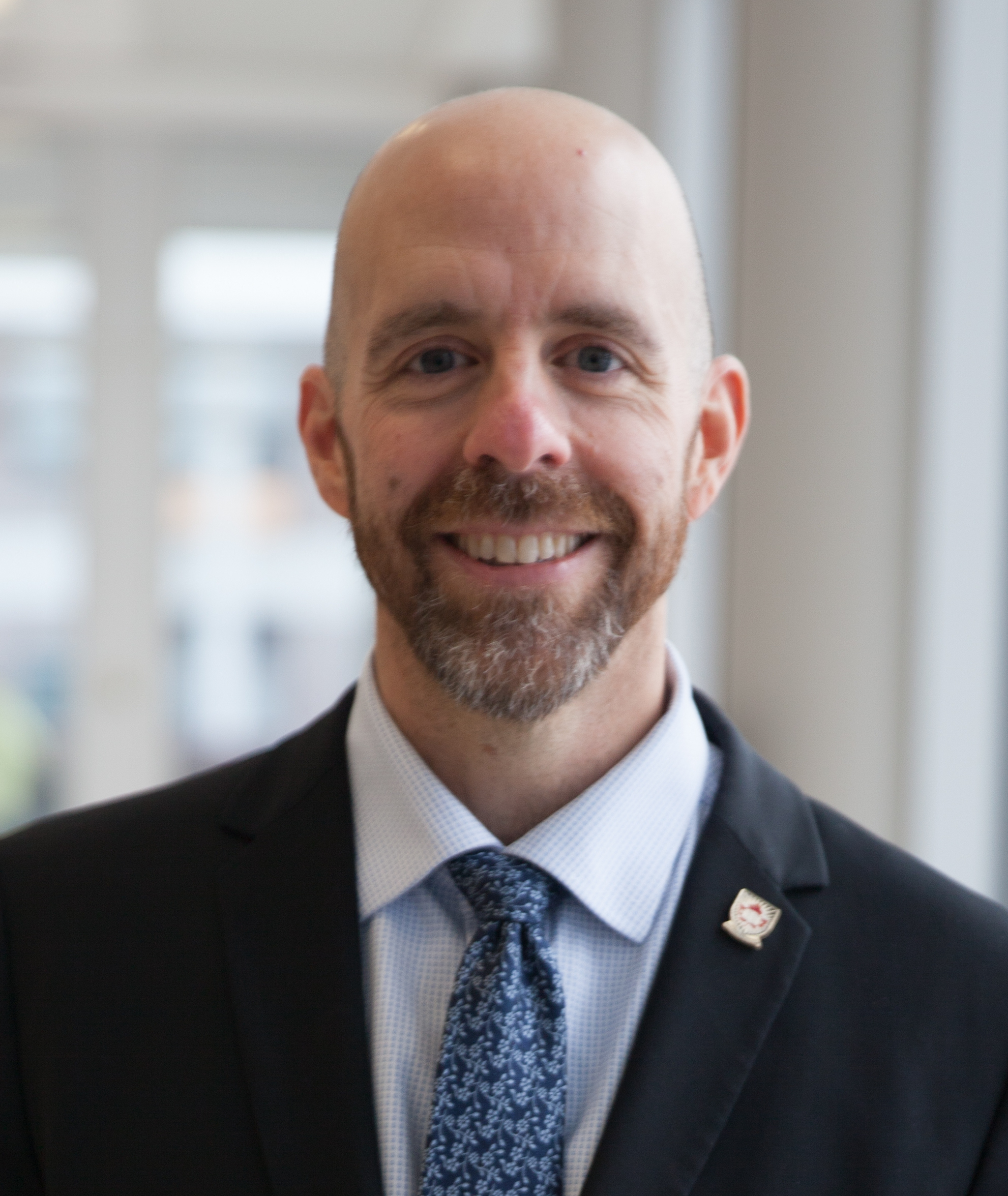
What he learned: The COVID-19 pandemic has forced us to acknowledge that many people struggle to hold their lives together, as evidenced by the increased prevalence and visibility of mental health and substance use issues. And many people who are considered “functioning” are also haunted by the past, unfulfilled in the present or scared of the future. We are collectively more traumatized than we like to admit.
Any conversation about the Future of Work must include consideration of supporting individual and collective healing from trauma. We must imagine workplaces that support personal growth, gratitude and reverence for life, and conversely reduces the likelihood of post-traumatic stress, depression, anxiety and substance use.
Here’s one simple example – for millenia, essentially all cultures have recognized the importance of practices that still of the mind – notably prayer, mindfulness, smudging, meditation, etc. A key to true wellness is to remember that there exists a larger awareness behind the constant commentary of our minds. Learning to still the mind and to connect with that larger awareness is essential to going beyond simply being functional. This is what real mental health is.
The workplace of the future must approach productive activity as a holistic endeavour that sustains the individual not only financially, but on the journey towards health and wellness – towards being whole, free and fulfilled.
—
Bio
Dr. Benoit-Antoine Bacon started his five-year mandate as President and Vice-Chancellor of Carleton University on July 1, 2018. He previously served as Provost and Vice-Principal (Academic) at Queen’s University, and Provost and Vice-President (Academic Affairs) at Concordia University in his hometown of Montreal. He holds a PhD in neuropsychology from the University of Montreal. His research in the field of cognitive neuroscience focuses on the links between brain activity and perception in the visual and auditory systems, as well as on multisensory integration.

What they learned: The single biggest objective change in the future of work, and the shift that has most starkly affected my own perspectives, has been the increasing share of people working from home. This new workplace paradigm demonstrates a remarkable amount of flexibility and innovation. It is not certain that firms will be able to hold on to all the best aspects of these shifts, but I think there will be many changes at the margin: less travel, increasing work-life-balance flexibility, and more video calls and face-to-face collaboration due to increasingly collapsed distances. In contrast however, I think that the pandemic has also underscored the irreplaceability of the office as a social place, where people not only work together, but enjoy talking with each other, forming friendships, scheming and innovating together as a team, etc. Starker bounds have been put on the future of work: on one end, we see how much flexibility there is in work location, but on the other, we see how some colocation and interaction is deeply necessary. Policymakers can address this context by moving urgently to figure out the mix of portable benefits and pensions, micro training and credentialing, and international work allowances that will make it possible for us to capture all the most positive elements of the work from home revolution while realizing the communal benefits of the in-person workplace.
—
Bio
Peter Loewen is a Professor in the Munk School of Global Affairs & Public Policy and the Department of Political Science at the University of Toronto. He also serves as Associate Director for Global Engagement at the Munk School. He is interested in how politicians can make better decisions, in how citizens can make better choices, how governments can address the disruption of technology and harness its opportunities, and the politics of COVID-19.
He has published in leading journals of political science, economics, psychology, biology, and general science, as well as popular press work in the Washington Post, San Francisco Chronicle, Globe and Mail, National Post, and Ottawa Citizen. His research has been funded by SSHRC, the European Research Council, the Government of Ontario, and other organizations. He regularly engages in public debate and acts as a consultant to several public and private organizations.
Previously, he served as the Director of the School of Public Policy & Governance and the Centre for the Study of the United States at the Munk School of Global Affairs. He is a distinguished visitor at Tel Aviv University, and was previously a fellow at the Center for Advanced Study in the Behavioral Sciences at Stanford University. He has held visiting positions at Princeton University and the University of Melbourne.
Blake Lee-Whiting is a PhD student in the Department of Political Science at the University of Toronto, and a Research Fellow in the Policy, Elections, and Representation Lab (PEARL) at the Munk School of Global Affairs and Public Policy. His research focuses on Canadian politics, political staffers, and the disruptive effects of emerging technologies.
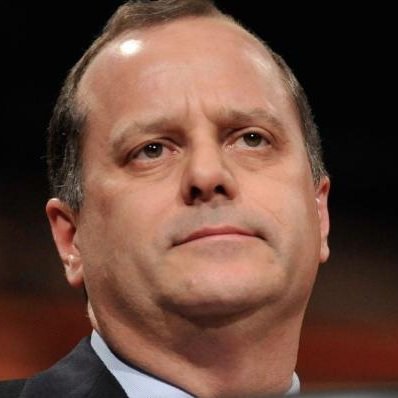
What he learned: In the past three decades, the net effect of workplace policies public and private has been to focus wealth and increases in compensation on the few among us who already have the most — and to erode the income, benefits and retirement security of most people to pay for it.
Without explicitly saying so, I believe many of the people turning their minds to the future of work through this process are looking for something better. And we need to do better for our citizens and workers, if we want a competitive high-value economy in a post-carbon world.
What is the one big thing governments should do to promote a better future for work?
I suggest a common, multi-jurisdictional modernization of Canada’s antiquated labour standards and labour law.
To help wean employers off an unsustainable and socially undesirable dependence on cheap labour (like, for example, restaurants serving $100 steaks, put on the table by wait staff who then go to food banks to feed their families).
To allow people to help themselves, by organizing and negotiating with some hope of making improvements.
And to write current, fair and realistic rules to help people in the growing gig economy — rules that preserve what people like about that gig economy, while making progress addressing its dysfunctions.
—
Bio
Brian Topp is a fellow at the Public Policy Forum, a partner at KTG Public Affairs and is precariously employed as one of an otherwise magnificent group of lecturers at the new Max Bell School of Public Policy at McGill University. He recently served on the government of Canada’s NAFTA advisory panel. He was chief of staff to Alberta Premier Rachel Notley and was deputy chief of staff to Saskatchewan Premier Roy Romanow. He was born in Montreal, is a graduate of McGill University and lives in Toronto.

What he learned: My perspective on the future of work hasn’t changed as much I would have expected given the experience of the pandemic and how Colleges and businesses adapted to a remote service and work reality.
We have witnessed and experienced an advancement in the use of technology in our work, commerce and governance, to mention a few, a trajectory that was already advancing and was accelerated due to the global pandemic.
This hybrid model of work and learning will continue, but I expect that a majority of activities will return to a more in-person operation than first thought when we were amid the pandemic.
A college education is so much more than academic studies and the in-person interactions – in and outside the classroom – are often the greatest and most impactful elements of acquiring skills and knowledge. Technology will not replace those rich elements of in-person experiences in the labs, shops and workplaces.
Education, like business, will likely expand upon the best practices using technology and see a hybrid, hyflex model going forward that responds to the variety of preferences of student, stakeholders and partners. These flexible environments will provide employees who prefer a hybrid work schedule an opportunity to work outside the office, or a combination of both.
Policy makers must ensure they don’t over respond to the hype around remote work model and provide a balanced approach that is responsive to more traditional operations, hybrid, hyflex and allow for future of adaptation driven by technology and human behavior.
—
Bio
Don Lovisa is President of Durham College, a position he has held for the past twelve years of his more than 30 year career in post-secondary education.
He is a strong advocate for the college system and changing lives through learning, in and out of the classroom. He believes that DC is successful because of its dedication to students, employees, and its strong community connections.
Lovisa is considered a leader within the college system and the broader provincial and national community. He is currently a Director on the Board of Colleges and Institutes Canada (CICan), past Chair of Colleges Ontario (CO), and is a member of the Education Committee of the Black North Initiative (BNI).

What she learned: What the future of work looks like depends on the future of workers—we cannot separate the two. How workers are treated, and their ability to secure good incomes and benefits, should be central to discussions about the future of work. When we do that, we realize that we have at our disposal policy, regulatory and legislative mechanisms that can ensure that work is synonymous with dignity.
Over the past several years, conversations about the future of work have had a sense of inevitability about them—that a globalizing workforce, technological change and automation mean that there will be growing inequities in our labour market. But there isn’t anything inevitable about this. How workers are treated and compensated is reflective of the standards and regulations shaping the world of work. If we want a brighter future of work for workers, we have to have the courage to establish stronger employment standards and protections.
The rules shaping work are also critical to the future of our social safety net. When workers face job loss or can’t work, we need to ensure that we have a diversity of strong public supports and services that workers and their families can access with ease.
—
Bio
Garima Talwar Kapoor is the Director of Policy and Research with Maytree, a foundation committed to advancing solutions to poverty through a human rights approach. Prior to joining Maytree, Garima spent several years with the Ontario Public Service in progressively senior roles. Her work focused on understanding how changes in the labour market and economy impact population health and our social fabric, and helped develop policy initiatives that could help strengthen the income security system. Garima is driven by a passion to understand how civil society organizations, governments and private industry can work together to strengthen communities across Canada. Garima holds a Master of Public Health from the University of Toronto, and a Bachelor of Public Affairs and Policy Management from Carleton University.

What he learned:
The most important thing I learned is this. The future looks messy. There are many different ideas from many informed and smart people about what the future of work will look like. I am not sure who is right and I am equally sure that while I appreciate the range and diversity of opinions being expressed they are just that — opinions. I am not convinced that anyone has a monopoly on the future reality or that we have a strong evidentiary basis for the different views on how the world of work will be different in the future. But of this I am sure. It will be different. So, how do we act, prepare and develop policy in this unpredictable, dynamic volatile world? We allow for a whole set of different ideas, policies and potential solutions to flourish and to be tried. In particular, we embrace some that seem really wacky or really different because, who knows, they may be the right ones. Some will work, some will not. But this perspective underscores the need for rigorous, disciplined and comprehensive evaluation of whether things we are trying are really achieving the outcomes we hope to achieve. This requires some tolerance for failures and flops — this is very hard to accommodate in today’s realpolitik of how governments work, how we fund and use public funds and how we are purportedly held accountable.
—
Bio
Harvey P. Weingarten is Principal of the School of Applied Health Sciences at the Michener Institute of Education at UHN and a Senior Fellow at the C.D. Howe Institute. He was formerly Vice-President (Academic) and Provost at McMaster University, President and Vice-Chancellor at the University of Calgary, and President and CEO of the Higher Education Quality Council of Ontario.

What she learned: I hope the Future of Work continues evolving, along with how we value people’s contributions. Practices are changing. Companies are recruiting for the right skills and competencies over the right fit and degree. Job seekers are looking for companies that align with their values and are diverse and inclusive.
The single most important action, in my opinion, for policymakers engaged in the Future of Work involves education. The future of work is our youth. There are real barriers to opportunity in the K-12 and post-secondary education systems. For example, at the public-school level, literacy requirements and access to community-based work experiences must be consistently applied in the special education stream so that all students graduate with better options for their future. In post-secondary, graduates’ employment rates for students who have a disability should be reported, to ensure access to internships and career services. Professionals educated outside of Canada should have an easier time securing equivalencies, ensuring access to the jobs that need and match their skills.
We must change the policies and systems that create barriers, so that everyone has access to employment, that Canada attracts and retains top talent, and that we remain competitive at the global stage.
—
Bio
Jeannette Campbell is the CEO of the Ontario Disability Employment Network (ODEN). Jeannette is a passionate believer in the non profit sector, its ability to move the needle on awareness, opportunities, and education about disabilities and, increase inclusion. She has 20+ years of demonstrated leadership in service, program design, evaluation, and partnership development with educational institutions, service agencies, all levels of government, and private sector stakeholders.

What she learned:
It is impossible to talk about the future of work without talking about its present and the massive disruption to the labour force and workers’ lives that COVID has wrought. As has been said many times by many wiser than me, COVID hasn’t so much created new economic inequalities as it has revealed the extent of longstanding ones. For me, two are particularly noteworthy: divisions along care work and divisions along standard and non-standard forms of work. Some workers have struggled to maintain both paid work and unpaid caregiving, while some, largely free of caregiving responsibilities, have managed to increase their working hours and incomes. Other workers employed to provide paid care to our very young or elderly have struggled to protect their own wellbeing without adequate compensation or employment security. While the term “gig work” is now on the lips of many politicians, the reality is that digital platforms did not invent dependent contracting, or multiple job-holding, or mixing self-employment and a job to make ends meet. We should instead be focused on the features of precarious work and earnings that are both low and volatile, making a worker frequently vulnerable to economic shocks. And none of these trends can be properly understood without taking an intersectional lens, because gender and race explain a lot about who experiences these inequalities. Looking ahead, we are long past due for EI reform and for a reform that stops implicitly assuming only a very narrowly-defined kind of worker deserves a safety net.
—
Bio
Dr. Jennifer Robson is an Associate Professor of Political Management at Carleton University where she teaches courses on public policy and research methods. She holds a PhD in public policy and degrees in political science and psychology and her research addresses social and tax policy, poverty in Canada and public administration. Prior to joining Carleton, she held a number of policy and research roles in the non-profit and public sectors in Canada. She was Director of Policy for the non-profit SEDI (now Prosper Canada) and worked in the federal public service. Jennifer has also served as a member of the Advisory Panel on Tax Expenditures to the Minister of Finance (2016) and was a member of the National Research Committee on Financial Literacy for the Financial Consumer Agency of Canada (2015 to 2018).
She is advising the new Public Policy Leadership Program.

What he learned: Our economy is undergoing a necessary shift to support long overdue efforts to tackle climate change. This is a decades-long conversation. We all knew it would happen, but the pace of change is catching many in Canada unprepared. How we preserve and protect good jobs – union jobs – through this and broader technological shifts must be a top priority discussion for policymakers.
Governments are finally starting to realise the role they must play in shaping the future of work to create opportunities, support the industries Canada needs to meet its climate commitments and to raise the floor for workers through strong labour laws and employment standards.
If we’ve learned anything from the pandemic it is that our most essential workers are underpaid and left with bare minimum workplace standards. We’re also reminded that governments have the capability to put policies in place to protect people and guide our economy on a path to a fair, inclusive and resilient recovery.
This includes everything from industrial strategies and accelerating investments in our manufacturing, processing and resource sectors to a higher minimum wage, broader based bargaining, stronger employment standards and anti-scab legislation.
There is no one policy to shape the future of work. If Canada is going to realise the future we all deserve, we have to decide where we want to go, plan ahead and take action.
—
Bio
Elected the first National President of Unifor in August 2013 at the union’s founding convention, Dias was re-elected to his post in 2016 and 2019. As the largest private sector union in Canada, Unifor represents more than 315,000 workers in every major sector of the Canadian economy.
Dias has been twice named among the country’s 50 most powerful people by Maclean’s, in 2013 and most recently in 2020. He has been called the ‘5 billion blue-collar man’ in the Financial Post, one of the most fearsome people in the country by Sun News, and Canada’s most influential union leader by Ottawa Life. He was also named the Toronto Star Wheels’ Newsmaker of the Year in 2016 and 2020, one of CTV’s Don Martin’s political power players of 2018, and is a multiple Automotive News All Star.
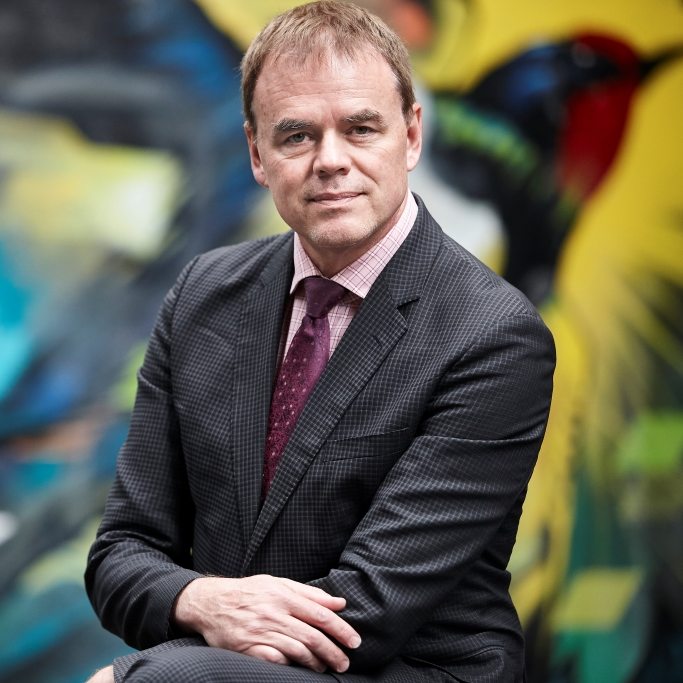
What he learned: To achieve an awesome future of work, the priority is not to focus on learning particular technical skills (like coding in a particular programming language, or some other narrow and likely transient tech specialization). Rather, we should focus on supporting and lifting up the quality of work in industries where far more jobs will be created in the coming decades than in high-tech occupations. Two categories of jobs will dominate future employment growth: public and caring services, and private sector services (including retail, hospitality, and transportation). The former requires stable funding and regulations to ensure that education, health care, aged care, disability services, childcare, and other human services are delivered in a high-quality manner, with great jobs. The latter requires regulatory interventions to improve job quality: including higher minimum wages, better vocational training requirements and career paths, and unionization. In short, the future of work is less about technology, and more about the choices we make as a society to value and protect work and the people who do it. As such, one policy that would have a huge positive impact on the future of work would be the full roll-out of the new federal-provincial national early child education program. It would support the creation of up to 200,000 jobs in childcare itself (and with adequate funding and regulation of credentials, those can be good jobs). It will support 750,000 or more additional FTE female participants in the labour market, creating huge opportunity to maintain and expand employment as the demographic ageing of the labour force continues over the next two decades. It will also equip children with stronger cognitive and social skills, which have been proven to enhance their employability and earnings throughout their working lives. This is just one concrete, pragmatic, effective way to support great jobs in the future: by better valuing work, and better supporting workers, rather than obsessing about technology. Provincial governments cannot pass up this opportunity.
—
Bio
Jim Stanford is Economist and Director of the Centre for Future Work, and Harold Innis Industry Professor of Economics at McMaster University. He divides his time between Sydney, Australia, and Vancouver.

What he learned: There are 4 interconnected themes, as I see them.
First, accelerated FoW trends, e.g. increased automation and AI, shifting marketplaces, and changing workplace roles. Employers and employees have to figure out how/where they fit sooner than anticipated.
Second, increased need for digital adoption and skills. Every workplace and job, including lower skill and “hands-on” jobs, requires some digital skills. Employers and employees need the skills to facilitate this shift and to adapt to continuously changing workplaces.
Third, more demand for cognitive and adaptability competencies aka “soft skills”. Skills such as communication, leadership, and critical thinking are essential in constantly changing workplaces. Employers are still learning how to recruit and train employees for these skills. Employees are still learning how to match this demand. Reskilling and upskilling is key.
Finally, better supports for inclusive participation. The pandemic has shone a light on those who have always been most at risk of being left behind in the FoW. More is needed to improve labour market outcomes for these people.
These are complex issues that no single action can solve. A foundational action to support all 4 themes is to accelerate the digital infrastructure for access to high-speed internet, including broadband, prioritizing underserved communities.
—
Bio
Kevin Ramnarine is passionate about driving innovation and change. He started his career with Business Link where he helped entrepreneurs start, grow and expand their businesses. Kevin then joined the public service in 2013 with the Alberta Government and has a track record of tackling wicked problems such as gender equality, climate change, and the future of work. He also played a key role developing the Alberta Government’s plan to implement the United Nations Declaration on the Rights of Indigenous people. As Director, Economic Security with Alberta Status of Women, he led a team to build partnerships between community organizations, private sector corporations, and governments to advance the economic security of women and vulnerable populations. In his current role as Policy Manager with Prairies Economic Diversification Canada, he works on a wide array of socio-economic issues and was instrumental in the policy design of the department’s Regional Relief and Recovery Fund to support small businesses impacted by the COVID-19 pandemic. Kevin is committed to life-long learning. He holds an MBA in International Business and is a Chartered Professional in Human Resources.

What she learned: The future of work has never been a static point in time or process in which we can simply study and make predictions on – it is constantly evolving and perhaps more than ever in the last three years, it has become increasingly clear the need to be dynamic in our evaluation of what are benefits or tradeoffs on certain innovations that can be marketed as the “future of work”. I have found that complacency is an increasingly dangerous weapon when it comes to evaluating the future for workers, in which we stop being critical and our society accepts messages fed into our labour market of what is instead of what is possible to generate the most equitable opportunities for all. Complacency is most dangerous when we stop listening to the voices of workers; often the most that can benefit from their voices being heard are often the most silenced. Policymakers cannot allow complacency in listening to voices of workers fall in priority – voices are constantly evolving and so should the processes to gather such information be constantly adapting to the needs of workers.
—
Bio
Laura Lam is a PhD student at the Centre for Industrial Relations and Human Resources at the University of Toronto where she holds a SSHRC J.A. Bombardier Canada Graduate Scholarship. She is also a researcher at the Canada Excellence Research Chair (CERC) in Migration and Integration and her research interest is at the nexus of migration, precarious employment and gender, with a focus on the use of app-based digital labour platforms. She completed her Master of Arts in Immigration and Settlement Studies at X University.
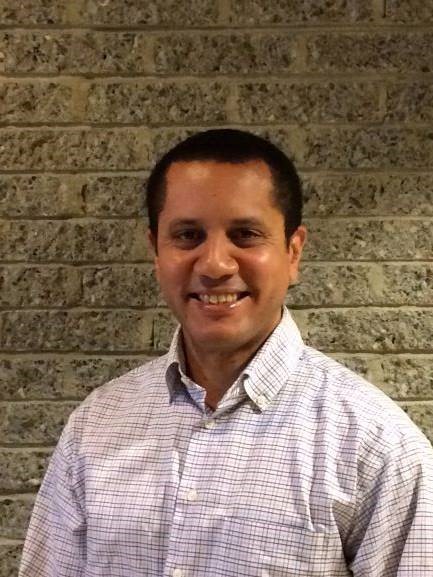
Over the three years, certain trends have been accentuated which has shifted my perspective on the future of work. In particular the disruption caused by technology (what’s sometimes called the 4th Industrial Revolution) and climate change will affect industries – some positively and some negatively – and will take the focused efforts of governments to ensure workers being trained, upskilled and reskilled. We’re also seeing a demographic shift, as population growth slows and economic development speeds up, leaving us in a unique position where we’re seeing elevated numbers of job vacancies. Finally, we’ve seen the pandemic pushing forward changes including the widespread uptake of telework.
Looking forward, resources must be put towards:
- Assessing the current situation by sector and profession, so as to discover our blind spots
- Support workers that lose their jobs, or are at risk of losing their jobs as a result of these disruptive changes, to ensure they can re-enter the workforce effectively.
- Policy interventions for employers that support training and upskilling efforts, so as to ensure that workers are prepared for an evolving labour market, and that managers are equipped with the human resources knowledge (ex. recruitment policies, diversity training) are in line with industry best practices.
- Building key linkages for policymaking with stakeholders in the labour market, including union leaders, education and training institutions, and job training organizations.
—
Special thanks
Special thank you to Patrick Gauthier, Director of Inter-governmental Relations and Special Mandates at the Ministry of Work, Employment and Social Solidarity for the Government of Québec, for this submission on behalf of Mr. Montminy-Munyan.

What he learned: Through the Brave New Work project, I have had an opportunity to better understand how different forces are reshaping Canada’s labour market and what that means for our economy and society.
I think there are two main takeaways for me. The first is that the “runaway automation” narrative one commonly finds in the media or in some political circles is not quite right – or at minimum is more complicated than is often characterized. While there has been technology-induced dislocation in the labour market (particularly in the manufacturing sector), the idea that robots will soon produce massive surplus labour seems highly improbable. The truth is labour productivity (which is a decent proxy for technological adoption) has been mostly stagnant. There is a strong case that we actually need more automation rather than less – especially in low-wage sectors and occupations. This will be a greater imperative as demographic-induced labour shortages become an even bigger economic challenge for the country.
The second takeaway for me is that our labour market is polarizing according to skill level. We used to have an egalitarian labour market with most jobs clustered in and around the middle of the skills distribution. Yet over the past 20 years or so, the relative share of middle-skilled occupations has fallen and more growth has occurred at the two poles of the skills distribution – low- and high-skilled jobs. This so-called “vanishing middle” or the “hourglass economy” has various socioeconomic consequences including of course contributing to income inequality and a bifurcation of experiences and perspectives within the economy.
—
Bio
Sean Speer is currently Fellow in Residence and Prime Minister of Canada Fellow at the Public Policy Forum. He is also an assistant professor at the University of Toronto’s Munk School of Global Affairs and Public Policy. He previously served as a senior economic adviser to former Prime Minister Stephen Harper.

What she learned: When our Brave New Work report was first published in December 2019, the pandemic was still a few months away from hitting Canada. Yet the personal financial crisis that many thought had arrived with the pandemic was already in full swing.
Several of the recommendations we made in our report have become even more pressing. Working towards a pan-Canadian definition of the concepts of “vulnerable worker” and “precarious workplace”; tracking and evaluating data on vulnerable workers and precarious workplaces; establishing a regular labour review processes in consultation with employers, employees and labour groups; and the creation of a portable ‘benefits bank’.
The one thing we did not call for was a basic income. The political climate we were writing in did not provide much hope that the idea would gain traction any time soon, but the idea has been gaining steam during the pandemic.
So far Canada has seen three basic income-style programs at the national level. The Canada Child Benefit (CCB) – a basic income for children and their families, the Guaranteed Income Supplement (GIS) – a basic income for low-income seniors; and the Canada Emergency Response Benefit (CERB) – a basic income for employed and self-employed workers impacted by COVID-19. Together, these three programs have already improved the lives of about one in every three Canadians.
A basic income is a policy that takes the unpredictability of the future of work seriously. It recognizes that in an age of disruption, we simply don’t have all the answers about where the economy is headed next.
It’s clear to most of us that the old economy is not coming back. No amount of tinkering around the margins will turn back the clock. It’s time for a new approach.
—
Bio
Theresa Lubowitz is the founder of Lubowitz Consulting and believes in working for forward-looking progressive causes and organizations that aim to make the world a better place. With a decade of experience as a communications professional in the public sector, she has led the successful rollout of marketing campaigns, public policy programs and large-scale fundraising campaigns. Theresa holds a bachelor’s degree in philosophy with a minor in sociology from the University of Ottawa and now calls Toronto home.

What she learned: Over the last three years, my perspective on the ‘future’ of work has come to better appreciate how innovations like AI tend to complement and not substitute labour. That has helped to assuage some basic anxiety. I’m encouraged that we speak less about “robots” and more about trends related to automation, algorithms, and portionality and surveillance.
I’ll be honest – the conversations about upskilling and lifelong learning give me a lot of anxiety. I wonder if we are over-focussing on supply-side interventions, instead of demand-side. Do microcredentials and other new interventions [that cost money] lower the barrier to entry for job seekers, or heighten it? Are we asking enough of employers when it comes to investing in their workers, or encouraging Canadians to pay more out-of-pocket for a shot at a new job?
Right now, I would like for policymakers to recognize the perils of algorithmically mediated work, be it from a mobile application or within factory warehouses or call centres, etc. To combine two alarming cliches, I think it’s a “gray zone” and a “wild west” where workers are suffering in ways that are invisible to us. Policymakers may be too detached from the systems that surveil and quantify people at work, pushing them to the brink and treating them like those very same “robots” that future of work conversations used to evoke. The future of work is here, and it is not evenly distributed. Policy has to catch up – stat. That is our work.
—
Bio
Vass Bednar is the Executive Director of McMaster University’s Master of Public Policy in Digital Society Program and a Public Policy Forum Fellow. She is an interdisciplinary wonk focussed on ensuring that we have the regulatory structures we need to embrace the future of work and new ways of living. As an enthusiastic and perpetual student of the policymaking process, she has held leadership roles at Delphia, Airbnb, Queen’s Park, the City of Toronto, and University of Toronto. Vass is recognized as a creative, data-driven thinker and was the Chair of the federal government’s Expert Panel on Youth Employment. A graduate of McMaster University’s Arts & Science Program, Vass holds her Master of Public Policy (MPP) from the University of Toronto and successfully completed Action Canada and Civic Action DiverseCity Fellowships. Passionate about public dialogue, she was also the co-host of “Detangled,” a weekly pop-culture and public policy radio show and podcast that ran from 2016-2018. She currently writes a newsletter about Canadian startups and public policy called “regs to riches” and was recently recognized as an outstanding alum with a McMaster “Arch” award.



